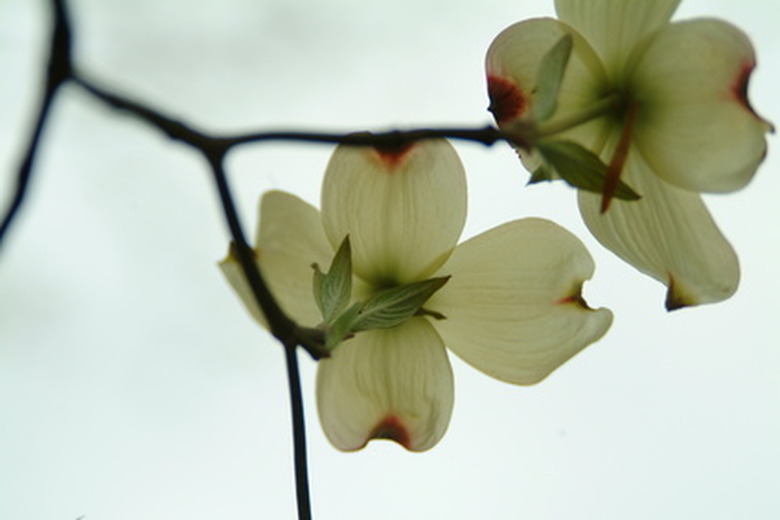Fertilizers For Dogwood Trees
Dogwood is a species of deciduous flowering tree well known for its shallow spreading root systems and sensitivity to fertilizer and soil moisture. According to North Carolina State University, excess fertilizer is commonly deadly to young dogwoods and can easily damage even mature trees when applied in excess. Feed trees two years and older twice per year with organic fertilizer or soil amendments or a synthetic slow release fertilizer formulation that will be gentle on the tree and root system. Apply according to label dosing directions over the surface of the soil and water in until drenched.
Commercial Organic Fertilizer
Liquid or dry organic fertilizers are gentle formulations that will feed the dogwood and surrounding soil over time but are compromised of all natural ingredients. Choose an organic fertilizer designed for acid loving plants that contain several of the following components: blood meal, bone meal, fish emulsion and bone, beneficial microbes, earthworm casings, feather meal, magnesium, potash, poultry manure, cocoa meal, alfalfa meal and greensand. Look for an organic product with a guaranteed analysis of 4-3-4 or 4-5-4 such as Espoma Holly-Tone or Dr. Earth Organic 4 Rhododendron, Azalea & Camellia Fertilizer.
- Dogwood is a species of deciduous flowering tree well known for its shallow spreading root systems and sensitivity to fertilizer and soil moisture.
- Liquid or dry organic fertilizers are gentle formulations that will feed the dogwood and surrounding soil over time but are compromised of all natural ingredients.
Slow Release Fertilizers
Slow release chemical fertilizers with a guaranteed analysis of 3-1-2 or 12-4-8 are ideal for feeding dogwoods. A complete granular fertilizer provides a high amount of nitrogen to drive top growth along with sufficient potassium and phosphorous to encourage root development and abundant bloom. The grains will break down in the soil slowly over time with watering and will never burn the roots. Widely available examples of this type of slow release fertilizer formulation include Osmacote and MiracleGro slow release granules.
Organic Soil Amendments
Mature dogwoods require no fertilizer when grown in nutrient rich soils. As an alternative to fertilizer products you can top dress the soil each year with ample amounts of high quality compost and well aged livestock manure. When spread under the tree beginning a few inches out from the trunk to a foot past the drip line of the canopy, the material will break down over time and feed the roots. This annual boost of nutrients will gently feed the tree and you never run the risk of over-feeding the tree.
- Slow release chemical fertilizers with a guaranteed analysis of 3-1-2 or 12-4-8 are ideal for feeding dogwoods.
- As an alternative to fertilizer products you can top dress the soil each year with ample amounts of high quality compost and well aged livestock manure.
